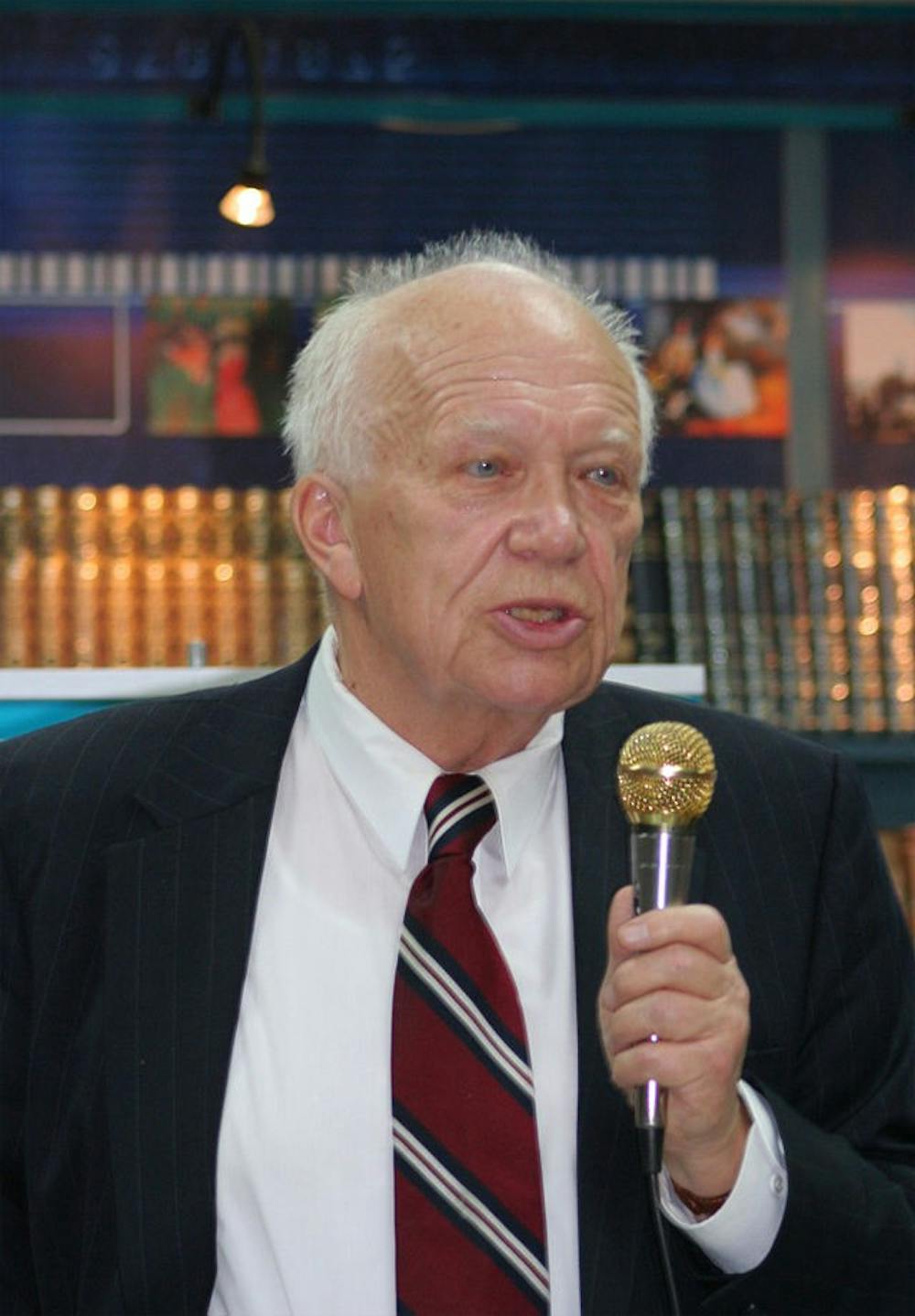Dr. Sergei Khrushchev, the son of former Soviet Premier Nikita Khrushchev, was the featured speaker at a panel discussion held Wednesday commemorating the 25th anniversary of the fall of the Berlin Wall.
A piece of the wall has been on display just outside the Special Collections Library since the end of the spring 2014 semester.
The evening panel, open to the public, focused on the Berlin Wall’s particular history. Khrushchev spoke to a small group of students from the Center for Politics’ fall intern class in a more personal setting earlier that afternoon. Gathered around a table in a small room, Khrushchev shared entertaining personal stories and advice on leadership.
“A good leader knows he is strong and is willing to compromise,” Khrushchev said. “A weak leader wants to appear strong. They are much more dangerous, because you never know where they stand and could step over the line by accident.”
Khrushchev pointed to his father, as well as U.S. Presidents John F. Kennedy and Dwight D. Eisenhower, as examples of good leaders in their handling of negotiations during the thick of the Cold War.
When Eisenhower first met Nikita Khrushchev in Geneva in 1955, the meeting had no breakthrough or significant results — though at a high level of leadership, even introductions are significant, Khrushchev said. After his father returned from the meeting with Eisenhower, Khrushchev asked him how he felt about the Eisenhower administration.
“I think we can deal with them, but we have to be strong,” Nikita Khrushchev said.
Sergei Khrushchev said statements by the Eisenhower administration in the press echoed the same sentiment.
Kennedy also exhibited strong leadership during this period of uncertainty, Khrushchev said.
“Kennedy said he wanted to leave the door open,” Khrushchev said. “Otherwise he would push the button because there was no other choice.”
Khrushchev compared the tension of the Cold War period to current crises plaguing modern politics, and said American ultimatums are evidence of weakness in the current U.S. administration — using America’s handling of the crisis in Ukraine as an example.
“A strong leader does not impose ultimatums,” Khrushchev said.
Khrushchev also spoke about the role media played in Russia and the United States.
“In America, most people believe what they read in the newspaper because there is no censorship," he said. "In Russia, it is common understanding to be suspicious that they are lying, and try to figure out the truth and why they are lying. It gives [the Russians] a more objective view.”
Ken Stroupe, associate director of the Center of Politics, said he agreed with this sentiment.
“I find it interesting how we self-select our source of news and then believe what is written in it,” Stroupe said.
Third-year College student Blair Wriston, who attended the event, said prospective leaders in the United States could take lessons from Khrushchev’s experiences.
“I learned that we need to be more aware of different cultures and that we shouldn’t buy into American news and sensationalism,” Wriston said. “We need to seek a variety of sources to have an informed opinion.”







